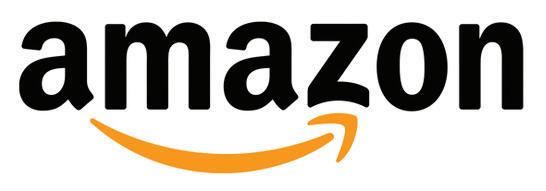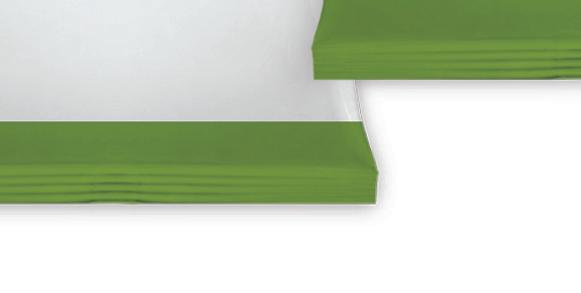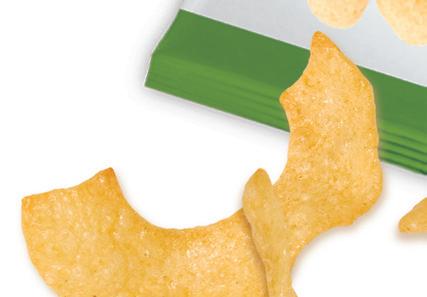
10 minute read
Industry News
from Store Brands - 0221
by ensembleiq
Utz Acquires Vitner’s from Snak King

Snak King, a leader in private brand and co-manufactured snack products, has been the primary producer of the Vitner’s chips and salty snacks products but will be handing that over to Utz.
Hanover, Pa.-based Utz Brands and its subsidiary Utz Quality Foods have entered into an agreement with Snak King to acquire assets related to the Vitner’s brand for $25 million.
The assets include the intellectual property, including the Vitner’s trademark, and direct-store-delivery distribution assets for Vitner’s products.
Based in Chicago, Vitner’s is an iconic brand in the area with a large line of potato chips, cheese snacks, corn snacks and popcorn that will bolster the Utz company from the seventh ranked producer of salty snacks in the Chicago market to the fourth. The Chicago market is listed as the fourth largest salty snack market in the United States with approximately $688 million in annual retail sales, per IRI.
With the acquisition, Utz plans to transition manufacturing of most of the Vitner’s products to its own manufacturing plants from Snak King, which has plants in Industry, Calif., and Freeport, Ill. Snak King is one of the largest producers of snacks for private label touching potato chips, tortilla chips, popcorn, kettle corn, caramel corn, extruded snacks (cheese puffs, cheese curls, nuggets), veggie chips, pop crisps, pork rinds and cracklins, as well as a complete offering of nut clusters, peanut and tree nut mixes, and specialty blends.
“We are thrilled to see the Vitner’s brand, established almost 95 years ago, become part of the Utz Brands platform,” said Barry Levin, chief executive officer, Snak King. “Utz will be able to leverage its world-class family of brands and expertise in DSD operations to help Vitner’s continue to serve the Chicago market.”
Utz expects the transaction to be accretive to earnings in 2021 and beyond.
“This strategic acquisition will make Utz a more significant competitor in the Chicago area. Combined with our recently announced acquisition of the On the Border tortilla chip, salsa and queso brand, we create a strong brand platform to better serve the primary salty snack channels and continue to expand rapidly in this important growth market,” said Dylan Lissette, chief executive officer of Utz. “This transaction is a continuation of our strategy to successfully build long-term value and share by expanding in major metropolitan areas, like we did in New York City in 1994, Boston in 2004, Pittsburgh in 2006 and Atlanta in 2011. This acquisition strengthens our competitive position and will be a spark for continued growth in the Midwest.”

Amazon Tops dunnhumby Retailer Preference Index

The fourth annual dunnhumby Retailer Preference Index has a new retail leader in the
top spot — Amazon.
The analysts said that in a year dominated by COVID-19 and its impact on retail and consumers’ lives, Amazon was able to jump the reigning top-two grocers H-E-B and Trader Joe’s, which slid to second and third, respectively, in the latest index.
The index evaluates a retailer’s performance based on several drivers: price, quality, digital, operations, convenience, discounts, rewards, information and speed. This year, dunnhumby also included calculations from its COVID Momentum Metric, a statistical model that predicts how retailer execution on the same preference drivers’ impact shortterm financial success, namely market share gains or losses during 2020.
The study also factors in a survey of 10,000 U.S. households for their feedback on retailer performance and studies retailer financial data. In the end, Amazon moved up to the top spot from No. 3 last year.
“Amazon accelerated past every other retailer on our COVID Momentum Metric and customer safety ratings, due to its speed to shop and virtual store format,” said Grant Steadman, dunnhumby’s president, North America. “As we begin to emerge from the pandemic, we should expect value perception to come back strongly. Beyond COVID, retailers with ‘Customer First’ strategies will best adapt to changing behaviors and deliver what matters most to their customers.”
The top 14 retailers ranked in order are: Amazon, H-E-B, Trader Joe’s, Wegman’s, Aldi, Market Basket, Sam’s Club, Costco, Publix, Target, Fresh Thyme, ShopRite, Sprouts Farmers Market, and Walmart.
The only new retailer to make the top 14 was Target, replacing Winco Foods, jumping six spots out of the second quartile last year, into this top quartile.
The Chicago-based analysts said the index this year showed that retailers who focused their business on superior value perception — defined by the strongest combination of price and quality — tended to have the most financial success and the strongest emotional bond with customers.



Metro Implements Product Wellness Guide
Two years in the making, Metro has launched an in-store and online guide that helps shoppers choose products that best fit their lifestyles and health needs. The My Health My Choices program shares insights on nearly 9,000 products sold by the grocer and pharmacy leader in Quebec and Ontario. It classifies foods using such lifestyle attributes as vegan, gluten-free, non-GMO and nearly 50 others. “Every month in Ontario, more than 1.3 million searches are made on the web in relation to the various attributes of My Health My Choices,” said Mike Thomson, Metro vice president of grocery merchandising. “With this program, we’re giving our customers the opportunity to choose foods that meet their own definition of wellness. The guide is designed to make their in-store or online shopping experience with us easier and more time efficient.”
The retailer worked with experts and specialists to design and implement the program, and Metro said it’s the only grocer in Canada to offer a food selection guide based on lifestyle and personal preferences through My Health My Choices. Shoppers can learn about the products by shopping online, through the My Metro mobile app, and by scanning bar codes of products in stores or at home. The retailer has also supported the program in stores with green signage directing shoppers to learn more but also by using green shelf tags that say if a product is gluten-free, for example, to help with quick identification.
The program helps shoppers choose among its store brand products and how they get classified as well as national brands.
“When you consider that 51% of Canadian adults regularly seek information on the quality, suitability and healthiness of the products they consume, a program such as this one is particularly important,” said Linda Montpetit, a nutritionist and long-time collaborator of Metro. “Information on product packaging is not always easy for consumers to interpret. This program combines the information on the labels with the hidden qualities of the products. This will greatly simplify people’s shopping experience and help them make informed decisions more easily.”
The development of the program’s classification criteria was based on research data, analyzing Canadian consumer trends, Canada’s food guide, information published by regulatory bodies like Health Canada, and the standards for different dietary lifestyles. A product may include several attributes classified according to their level of importance.


JCP Redesigns Own Brand Activewear
JCPenney has redesigned its store brand activewear line Xersion, which first debuted in 2018, and the workout gear is getting an enhanced technological layer.
The clothing includes a performance technology that the retailer calls Everair, a fabrication that combines breathable technology and a moisture-wicking capability for optimal air flow, keeping athletes cool and dry.
The retailer has been busy as of late, recently launching a new own brand of casual wear called Stylus. That line is more in the athliesure style of clothes whereas Xersion is built for workouts.
The Xersion private brand enables users to fully focus on the workout with sweat-proof pockets, reflective and anti-odor elements, venting, thumbholes, compression, built-in mesh and chafe-free seams. Women’s sports bras and high-waist leggings have three compression levels: studio, move, and train.
The clothing is available in a range of sizeinclusive lines for children, men and women.
“We are kicking off 2021 in the best way possible — offering new and improved merchandise to our customers,” said Michelle Wlazlo, executive vice president and chief merchant. “We know it can be challenging for customers to find activewear that delivers on performance, technology, design, comfort, and style, and the new Xersion product is sure to impress with updated details to help our customers meet their wellness goals.”
These Store Brands Made the Pre-shop Shopping List

Costco’s Kirkland brand and Walmart’s Great Value are the most popular store brands to get named on a consumer’s shopping list, according to exclusive insights pulled from the mobile platform AdAdapted.
The Ann Arbor, Mich.-based company is a mobile advertising platform that has the capability to analyze consumer mobile shopping lists across thirdparty grocery apps, identifying item and category performance across a broad audience of mobile shopping list builders.
For Store Brands, the company looked at which private brands stood out on their own and made the most mobile shopping lists, finding Walmart’s Great Value and Costco’s Kirkland brands frequently got listed from November 2019 to November 2020.
Looking at a category breakdown, the most popular Kirkland items to make it to a shopping list were water, wipes and toilet paper. The most popular Great Value items were milk, cheese and water.
AdAdpated listed the 10 most popular items listed under the private brand names and then of that share of the top 10 items, milk garnered nearly a third of share for Great Value. For Kirkland, water got nearly 15% of the share of top 10 items.
The most popular items for Kirkland in descending order were water, wipes, toilet paper, protein bars, coffee, laundry detergent, paper towels, chicken, butter and milk.
The most popular items for Great Value in descending order were milk, cheese, water, trash and resealable bags, coffee, drink mix, chicken, shredded cheese, sugar and bread.
The AdAdapted platform is a mobile advertising platform primarily for CPGs looking to connect brands with shoppers through integrations with shopping list apps.
The data pulled for Store Brands also included a look at such isolated categories as pasta sauce, butter and seasonings, finding retailer names listed in place of a brand. For example, in pasta sauce Ragu was the top listed brand name, followed by Prego and Classico on a shopping list, but Great Value ranked sixth, Costco eighth, Kroger ninth and Aldi 10th.
In butter, Great Value ranked fifth, with Kroger, Costco and Aldi also making the top 10. In seasonings, Costco finished eighth.
ITEMS ADDED WITH PRIVATE LABLE NAME
MOST POPULAR ITEMS

Milk 7.8% Butter 8.2%
Chicken 8.4%
KIRKLAND
Water 14.7%
Wipes 11.3%
Paper towel 8.8%
Laundry detergent 9.6%
Coffee 9.9%
1. Water - 14.7% 2. Wipes - 11.3% 3. Toilet paper - 11.2 4. Protein bars - 10% 5. Coffee - 9.9% 6. Laundry detergent - 9.6% 7. Paper towel - 8.8% 8. Chicken - 8.4% 9. Butter - 8.2% 10. Milk - 7.8% Toilet paper 11.2%
Protein bars 10%
TOP 10 ITEMS
ITEMS ADDED WITH PRIVATE LABLE NAME MOST POPULAR ITEMS




